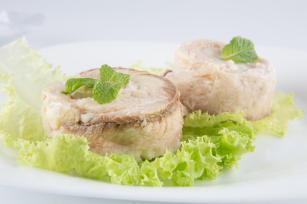BRS Aqua - Structuring actions and innovation to strengthen Aquaculture productive chains in Brazil Component project - Nutrition and Feeding
BRS Aqua - Structuring actions and innovation to strengthen Aquaculture productive chains in Brazil Component project - Nutrition and Feeding

Photo: MAY, Tomas
This project addresses several strategic actions in the area of tilapia and tambaqui nutrition. Fish feeding in fish farming plays an important role in the sustainable growth of aquaculture. Combined with nutrition, fish feeding is directly related to the fish growth, health and reproduction. In addition, adequate feeding reduce possible environmental impacts.
In fish farms, spending on food can represent up to 82% of production costs. Thus, the project aims to develop the tambaqui nutrition and update the information for tilapia. The digestibility coefficients of the main ingredients used in diets for both species will be evaluated (digestible nutrients and energy of each ingredient used to compose the diets). For tambaqui, the best relationships between protein and energy and also carbohydrate and lipid will be determined, aiming at the development of formulations more adequate to the requirements in the different stages of growth: larviculture, breeding, fattening and finishing. Based on this information, food protocols will be defined for intensive production in tambaqui ponds.
For tilapia, the research will develop an eating plan with updated information considering the most current genetics (improved fish strain and ingredients) besides to determining the use of nutrients and energy of the main ingredients that compose the diets. Also, updates on protein requirements and food management (amount of feed provided and number of daily treatments) considering two temperatures for all breeding phases (nursery, rearing, fattening and finishing). Through this plan it will be possible to guarantee more precise adjustments for the real use of the rations (digestible protein, waste production and economic analysis regarding the fillet yield). In addition, the inclusion of additives and agroindustrial coproducts in tilapia diets will be studied to improve animal performance and health. The use of these additives and coproducts can reduce the environmental impact and production costs and, therefore, will be evaluated.
Additionally, the project will evaluate the quality of the feed in order to verify the processing parameters and the monitoring of their chemical quality. Thus, diagnoses will be elaborated that may induce improvements in processing. Chemical quality assessments will be carried out through the preparation of a certified reference material that guarantees quality in the laboratory analysis of chemical composition determination (guarantee levels, such as crude protein). In addition, the chemical quality can be evaluated by the elaboration of an appropriate calibration curve for fish rations to be used with current equipment technology (NIR), capable of analyzing feed composition quickly and without using reagents.
Therefore, with this project knowledge on nutrition (requirements and additives) and food (handling) of tambaqui and tilapia will be generated and updated. Additionally, regarding feed quality, the research should contribute to the generation of new methodological and parameterized tools that guarantee certified and appropriate analyzes for the fish feed, in addition to monitoring the quality of the processing performed by the feed factories.
Status: In progress Start date: Tue Jan 01 00:00:00 GMT-03:00 2019 Conclusion date: Tue Dec 31 00:00:00 GMT-03:00 2024
Head Unit: Embrapa Western Agriculture
Project leader: Tarcila Souza de Castro Silva
Contact: tarcila.silva@embrapa.br
